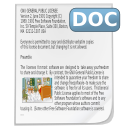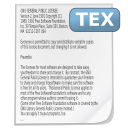Steam Video Game Reviews Classifier
Abstract
This paper leverages a dataset generously provided by the Steam community, encompassing over 37 million
user recommendations for various video games. These meticulously cleaned and preprocessed data originate
exclusively from the Steam Store, a platform for online downloadable content in the realm of video games. The
primary objective of this study is to conduct a sentiment analysis of user comments within the Steam Store,
discerning both negative and positive emotions. The dataset comprises three distinct subsets, and this study
focuses exclusively on the recommendations dataset for its analysis.
Downloads
References
U. Rajapakshe, “Development centric player feedback analysis for video games: A review,” in 2019 International Conference on High Performance Big Data and Intelligent Systems (HPBD&IS). IEEE, 2019, pp. 190–194. DOI: https://doi.org/10.1109/HPBDIS.2019.8735460
H.-N. Kang, H.-R. Yong, and H.-S. Hwang, “A study of analyzing on online game reviews using a data mining approach: Steam community data,” International Journal of Innovation, Management and Technology, vol. 8, no. 2, p. 90, 2017. DOI: https://doi.org/10.18178/ijimt.2017.8.2.709
L. Eberhard, P. Kasper, P. Koncar, and C. G¨utl, “Investigating helpfulness of video game reviews on the steam platform,” in 2018 Fifth International Conference on Social Networks Analysis, Management and Security (SNAMS). IEEE, 2018, pp. 43–50. DOI: https://doi.org/10.1109/SNAMS.2018.8554542
G. Andreev, D. Saxena, and J. K. Verma, “Impact of review sentiment and magnitude on customers’recommendations for video games,” in 2021 International Conference on Computational Performance Evaluation (ComPE). IEEE, 2021, pp. 992–995. DOI: https://doi.org/10.1109/ComPE53109.2021.9752380
M. Viggiato, D. Lin, A. Hindle, and C.-P. Bezemer, “What causes wrong sentiment classifications of game reviews?” IEEE Transactions on Games, vol. 14, no. 3, pp. 350–363, 2021. DOI: https://doi.org/10.1109/TG.2021.3072545
Z. Zuo, “Sentiment analysis of steam review datasets using naive bayes and decision tree classifier,” 2018.
- Conceptualization
- Data curation
- Formal Analysis
- Investigation
- Methodology
- Software
- Validation
- Visualization
- Writing - original draft
- Writing - review & editing
- Conceptualization
- Data curation
- Formal Analysis
- Investigation
- Methodology
- Software
- Validation
- Visualization
- Writing - original draft
- Writing - review & editing
- Conceptualization
- Data curation
- Formal Analysis
- Investigation
- Methodology
- Software
- Validation
- Visualization
- Writing - original draft
- Writing - review & editing
Copyright (c) 2024 Innovation and Software

This work is licensed under a Creative Commons Attribution 4.0 International License.
The authors exclusively grant the right to publish their article to the Innovation and Software Journal, which may formally edit or modify the approved text to comply with their own editorial standards and with universal grammatical standards, prior to publication; Likewise, our journal may translate the approved manuscripts into as many languages as it deems necessary and disseminates them in several countries, always giving public recognition to the author or authors of the research.
























